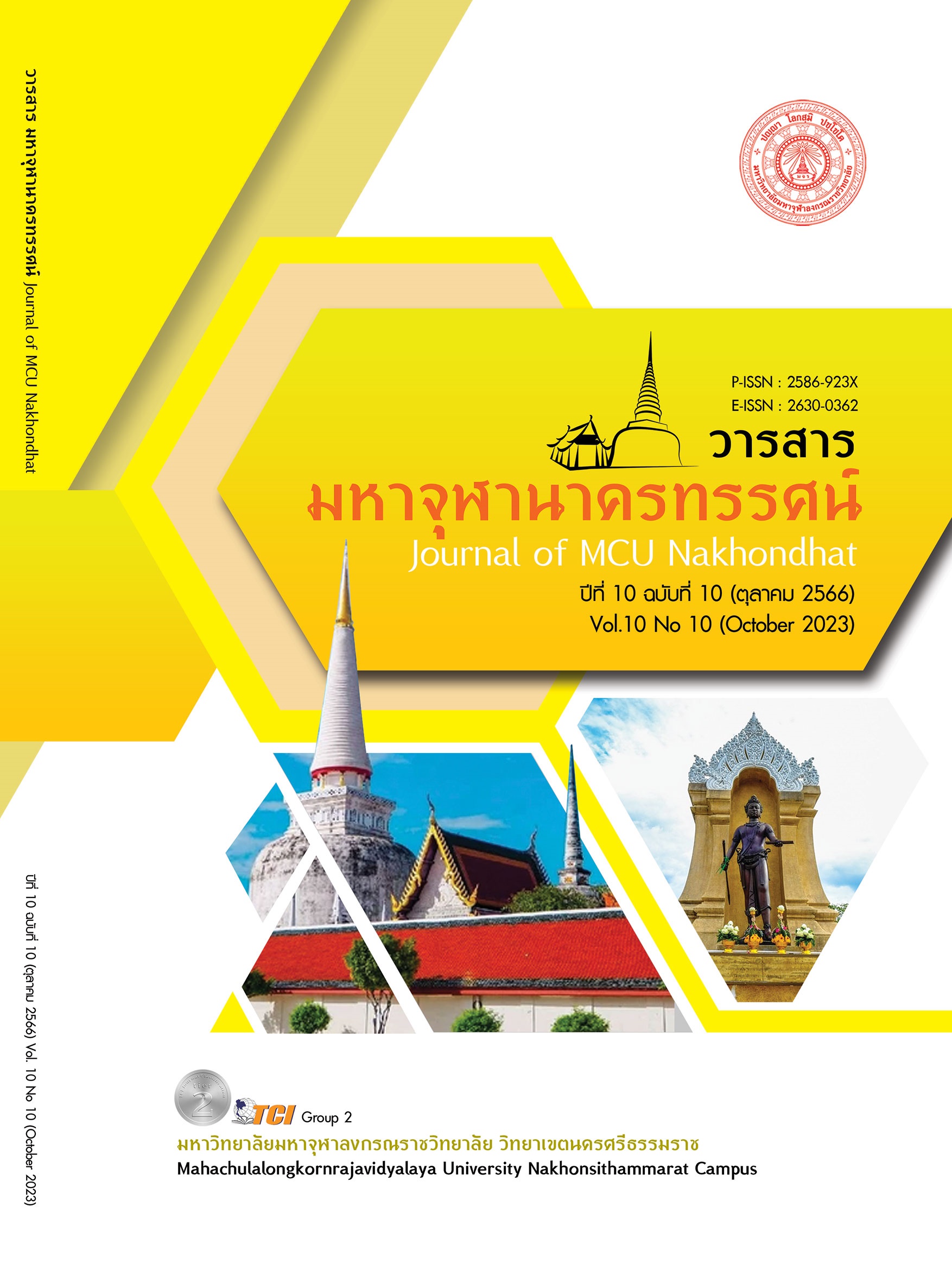BAIL FOR ACCUSED OR DEFENDANT IN A CRIMINAL CASE BEFORE THE COURT OF FIRST INSTANCE MADE A VERDICT ACCORDING TO THE CRIMINAL PROCEDURE CODE
Main Article Content
Abstract
This research Objectives: 1) To study about bail of an accused or defendant in a criminal case before the Court of First Instance gives a verdict. According to the Criminal Procedure Code. 2) Legal Measures of Thailand and abroad and research recommendations is a qualitative research By studying documents, legal texts, acts, rules, regulations, announcements, orders, legal documents. The results of the research found that: 1) bail for suspects or defendants in criminal cases before the Court of First Instance has issued a judgment It provides an opportunity for the accused or defendant to receive their rights and freedoms. But due to the granting of bail or temporary release of the accused or defendant It is the discretion of the official or the court. It is not required that the temporary release must include both a surety contract and a collateral. But those with the authority to order temporary release often require security to ensure that the accused or defendant will not escape. 2) Thai and foreign laws When considering an application for provisional release, the same principles apply by the judge. will look at the weight of the charges, the evidence, the circumstances of the case credibility Will the accused escape or not? Dangers caused by temporary release Objection of the official. And 3) suggestions Therefore, it is considered necessary to determine the principles for temporary release. Clearly set out in writing the conditions under which the court may order provisional release. A person being charged with a criminal offense has no reason to escape. Don't mess with the evidence, and not causing any other mischief is not considered necessary to place a person under state power. The court should primarily grant temporary release to those charged with criminal charges. And in granting permission for such temporary release, the court may also set conditions for the person being prosecuted to comply with.
Article Details

This work is licensed under a Creative Commons Attribution-NonCommercial-NoDerivatives 4.0 International License.
References
คณิต ณ นคร. (2549). กฎหมายวิธีพิจารณาความอาญา (พิมพ์ครั้งที่ 7). กรุงเทพมหานคร: วิญญูชน.
คณิต ณ นคร. (2561). กฎหมายวิธีพิจารณาความอาญา (พิมพ์ครั้งที่ 9). กรุงเทพมหานคร: วิญญูชน.
จักรวาล กาญธีรนนท์. (2554). ปัญหาในกฎหมายวิธีพิจารณาความอาญา. กรุงเทพมหานคร: มหาวิทยาลัยรามคำแหง.
จุลสิงห์ วสันตสิงห์. (2555). คำอธิบายประมวลกฎหมายวิธีพิจารณาความอาญา ภาค 1 (มาตรา 1 - มาตรา 119) พร้อมตัวอย่างคำถาม - คำตอบ (พิมพ์ครั้งที่ 4). กรุงเทพมหานคร: สำนักอบรมศึกษากฎหมายแห่งเนติบัณฑิตยสภา.
ญาณินท์ เมฆหมอก. (2562). "การปล่อยตัวชั่วคราวตามกฎหมายไทยเปรียบเทียบกฎหมายต่างประเทศ." ใน สารนิพนธ์นิติศาสตรมหาบัณฑิต สาขานิติศาสตร์. มหาวิทยาลัยศรีปทุม.
ณรงค์ ใจหาญ. (2552). หลักกฎหมายวิธีพิจารณาความอาญา เล่ม 1 (พิมพ์ครั้งที่ 10). กรุงเทพมหานคร: วิญญูชน.ประมวลกฎหมายวิธีพิจารณาความอาญา. (2499). ราชกิจจานุเบกษา เล่ม 73 ตอนที่ 95 ฉบับพิเศษ หน้า 1 (15 พฤศจิกายน 2499).
สำนักการสอบสวนและนิติการ กรมการปกครอง. (2561). บันทึกข้อตกลงพัฒนาระบบประเมินความเสี่ยงในการกำกับดูแลในชั้นปล่อยตัวชั่วคราวของศาลยุติธรรม. วารสารสำนักการสอบสวนและนิติการกรมการปกครอง, 7 (12), 4-5.
สุพจน์ ณ บางช้าง. (2548). กระบวนการบังคับใช้กฎหมายกับการคุ้มครองสิทธิของผู้ต้องหาตามรัฐธรรมนูญแห่งราชอาณาจักรไทย พ.ศ. 2540. นนทบุรี: สถาบันพระปกเกล้า.
สุวัณชัย ใจหาญ. (2555). คำอธิบายประมวลกฎหมายวิธีพิจารณาความอาญา เล่ม 1 (พิมพ์ครั้งที่ 9). กรุงเทพมหานคร: สยาม.
อานนท์ มาเม้า. (2564). กฎหมายทรัพย์สิน. (พิมพ์ครั้งที่ 4). กรุงเทพมหานคร: ศูนย์หนังสือมหาวิทยาลัยธรรมศาสตร์.
Today. (2020). Individual Rights Day. Retrieved September 29, 2023, from https://www.facebook. com/153951094974177/posts/1385953818440559/


